Fall Foliage at Eikan-do in Kyoto: Day and Night Illuminations Comparison
Eikan-do Temple is one of the most famous spots for viewing fall colors in Kyoto. The stunning autumn foliage transforms the temple grounds into a breathtaking palette of reds, oranges, and yellows. This guide details what to see during the day and night illuminations at Eikan-do, along with some photography tips to enhance your visit.
We visited Eikan-do on November 27, 2024, when the foliage was around 70% in progress. Due to the warmer temperatures, some trees were still green, but there was already an abundance of vibrant reds and oranges throughout the grounds. Among all the temples we visited for fall colors, Eikan-do had the highest density of maple trees.
Daytime Visit
We got to the main gate shortly after 9 am. The contrast of the temple’s traditional wooden gate, its white curtain, and the fiery foliage created an inviting first impression.
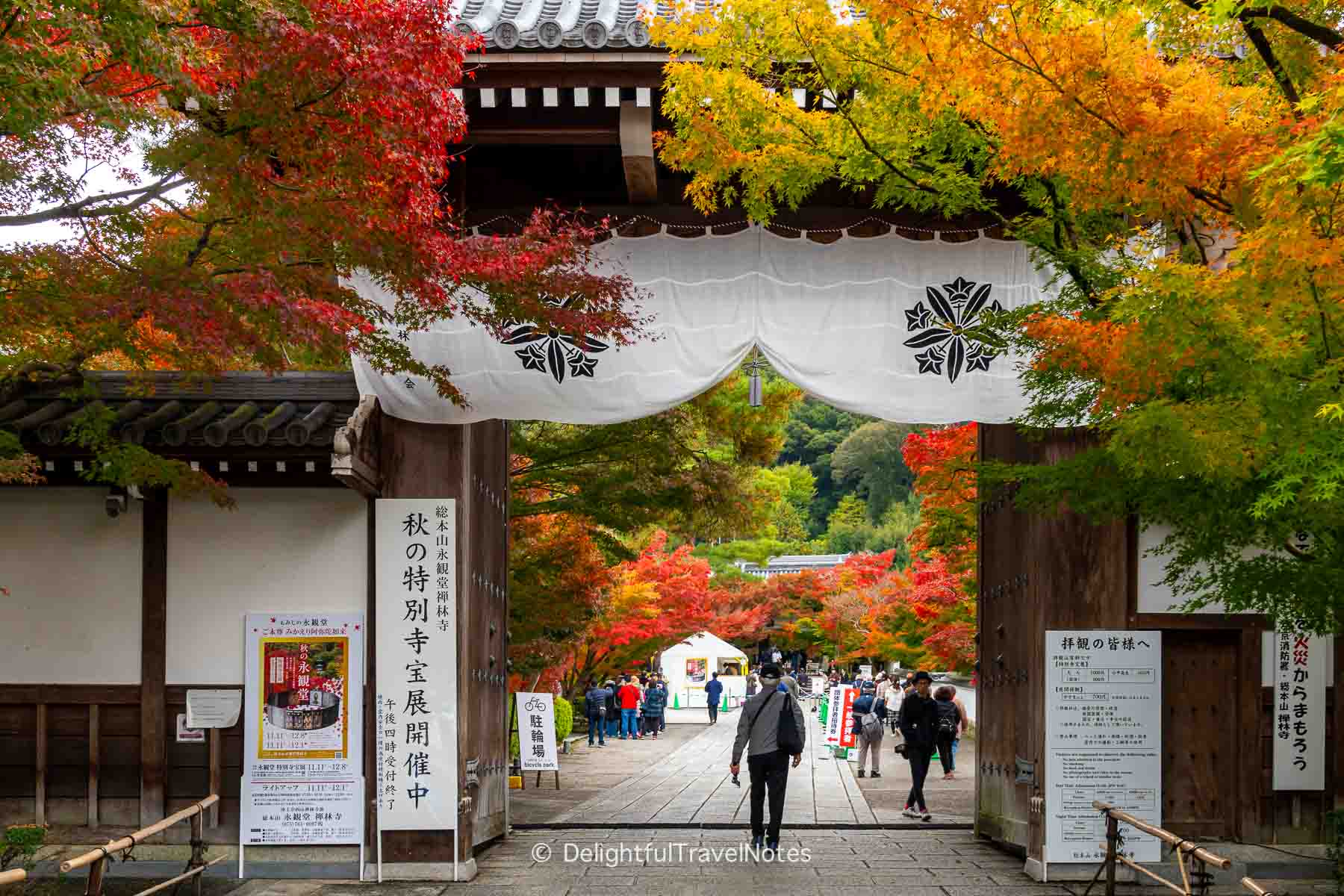
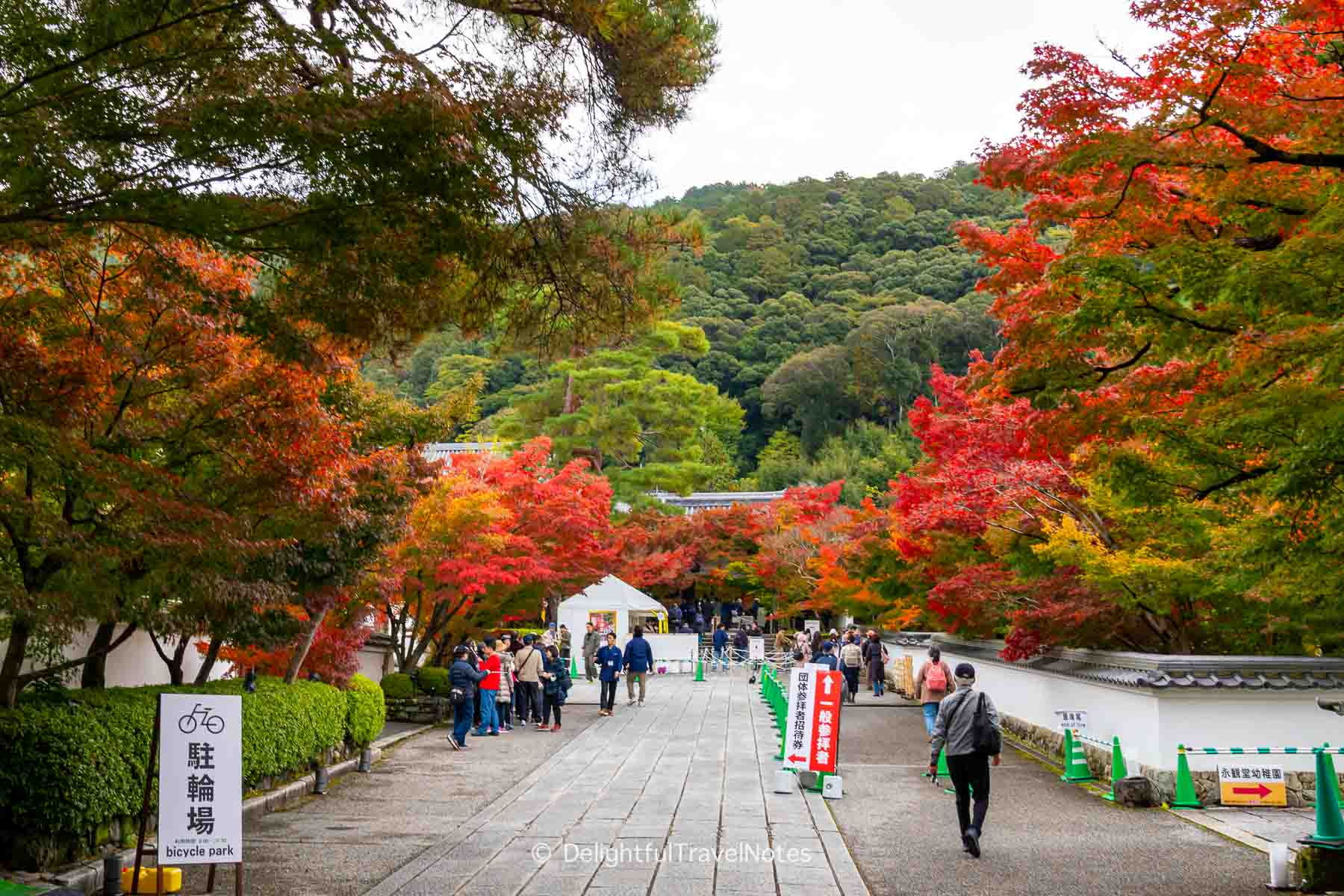
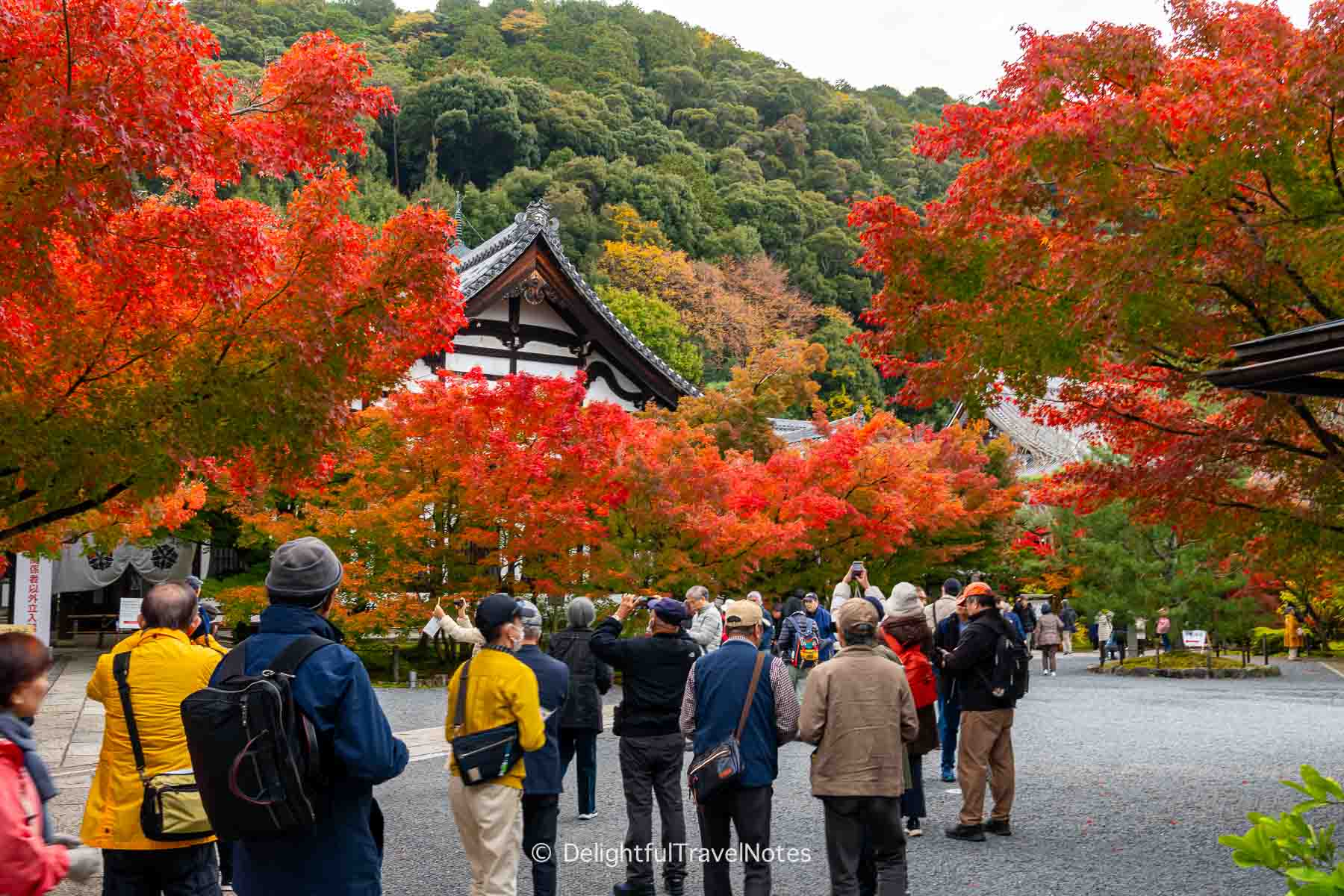
There was no line at the ticket window, but the temple grounds were already busy. Interestingly, we noticed that the majority of visitors were Japanese and Chinese, with very few Western or Korean visitors. Not that it mattered to us, I just found it quite interesting that certain temples seemed to attract certain demographics of tourists.
Once inside, visitors can choose their route: exploring the indoor halls and courtyard gardens, climbing up to the Tahoto Pagoda, or strolling through the main grounds with the iconic Hojo Pond. We decided to start with the pagoda, which required a short and easy climb up a few flights of stairs.
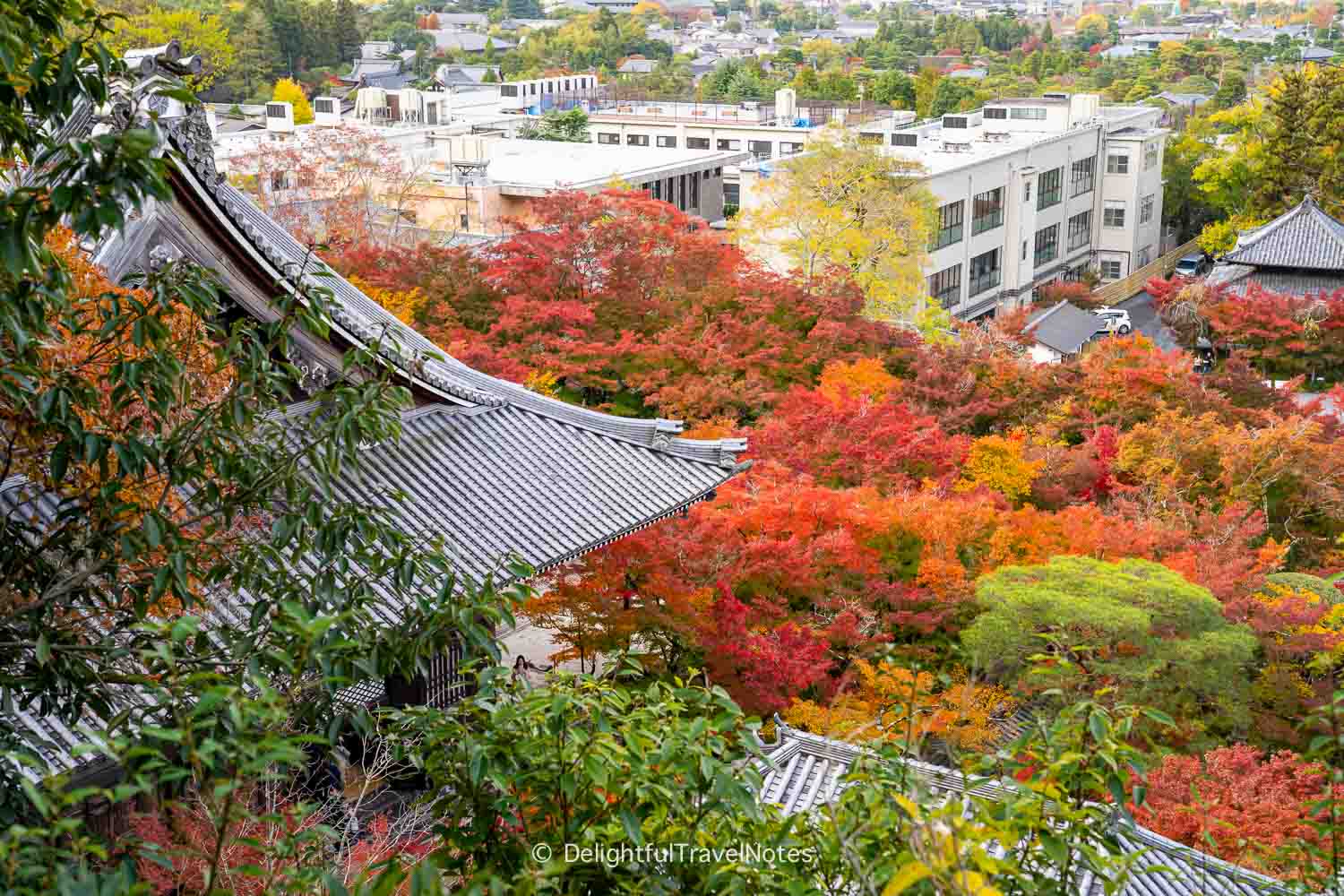
From the pagoda, we were greeted by a canopy of red and golden leaves, as well as a panoramic view of the city. While the view was pleasant, it was not particularly remarkable as the pagoda is not very high up. If you are fit and have time, it is worth the short climb for a complete visit. However, if mobility is an issue, you won’t miss much by skipping it.
After descending from the pagoda, we toured the temple halls. At the entrance to the halls, you can leave your goshuincho and come back later to pick up your goshuin. There are several rooms to see with paintings and murals to view. Photography is not allowed inside the halls, but photos of the garden are fine.
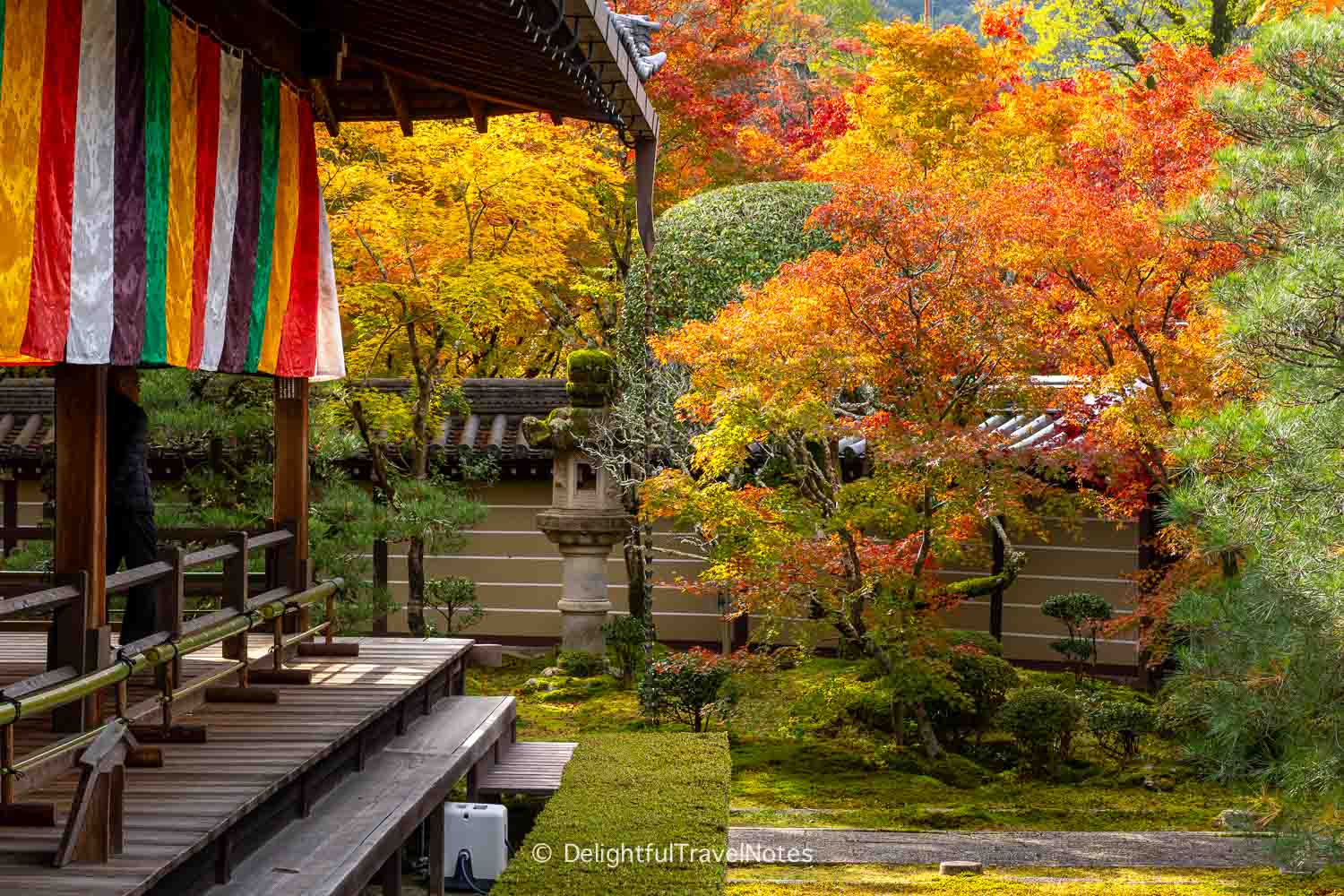
Exiting the halls, we ascended a few stairs and made our way toward the Hojo Pond, one of the highlights of Eikan-do. The small bridge which overlooked the bridge leading to the Benten shrine gathered a huge crowd. Everyone tried to capture the picturesque scenery with the reflection of the bridge and maple leaves in the water.
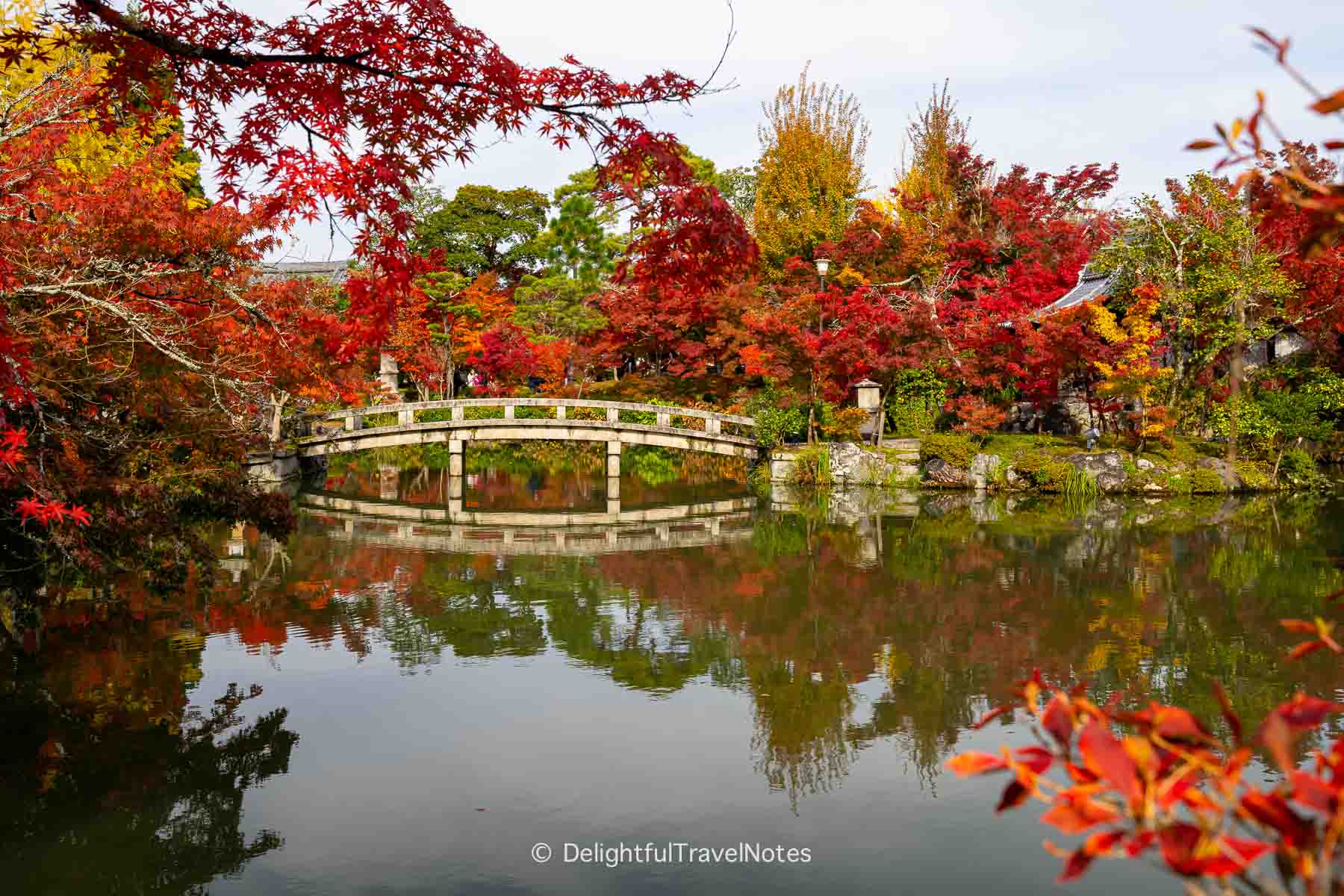
This small bridge is not the only place where you can photograph this iconic scene. Walk along to the other side of the pond and you will find more photo opportunities, such as this photo below. I like the view from this angle even slightly more than the view from the small bridge.
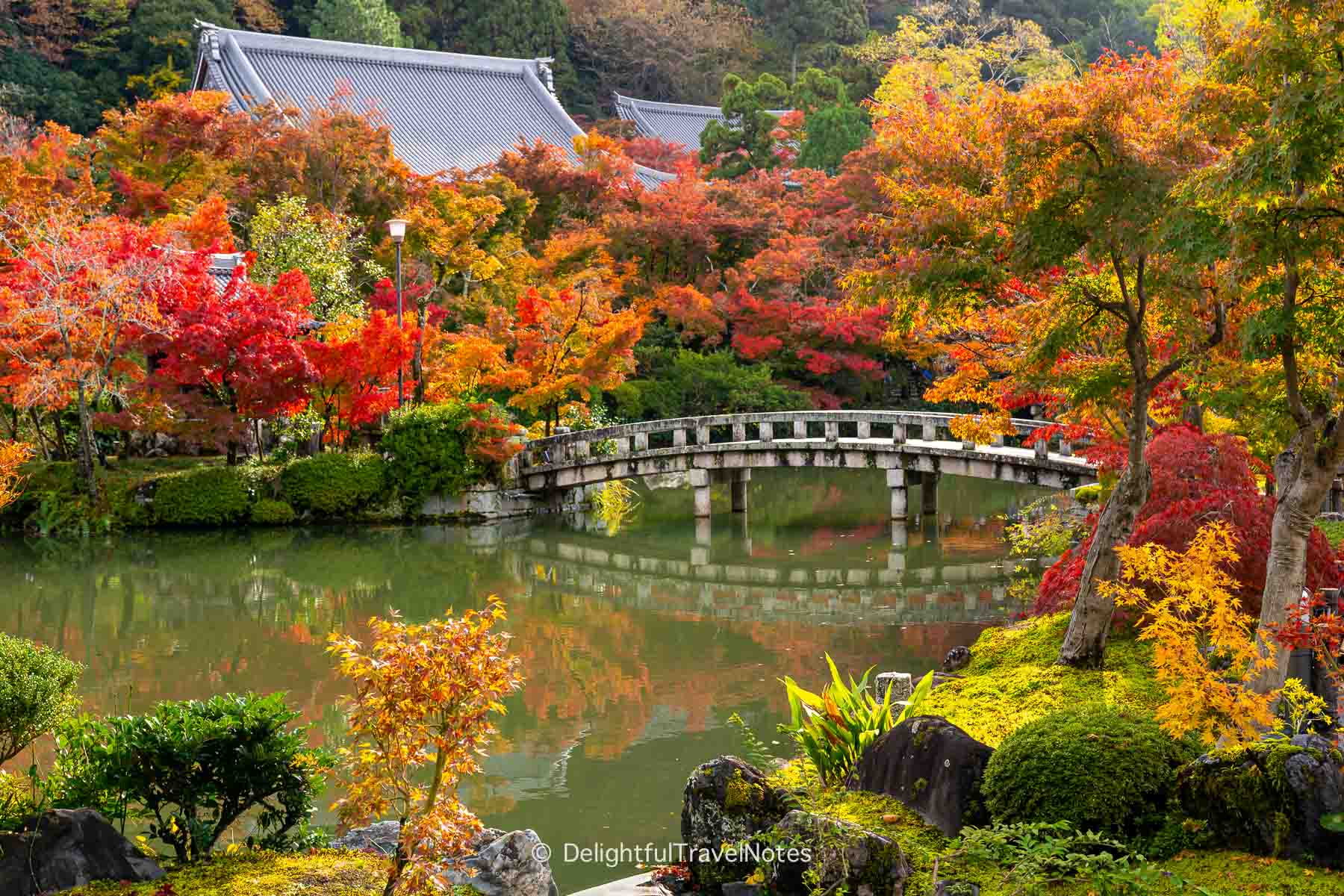
Also, don’t forget to look up and capture the pagoda framed by fiery foliage with the greenery of Higashiyama mountains in the background. And make sure to stop by the goshuin counter to pick up your goshuincho before exiting the temple grounds.
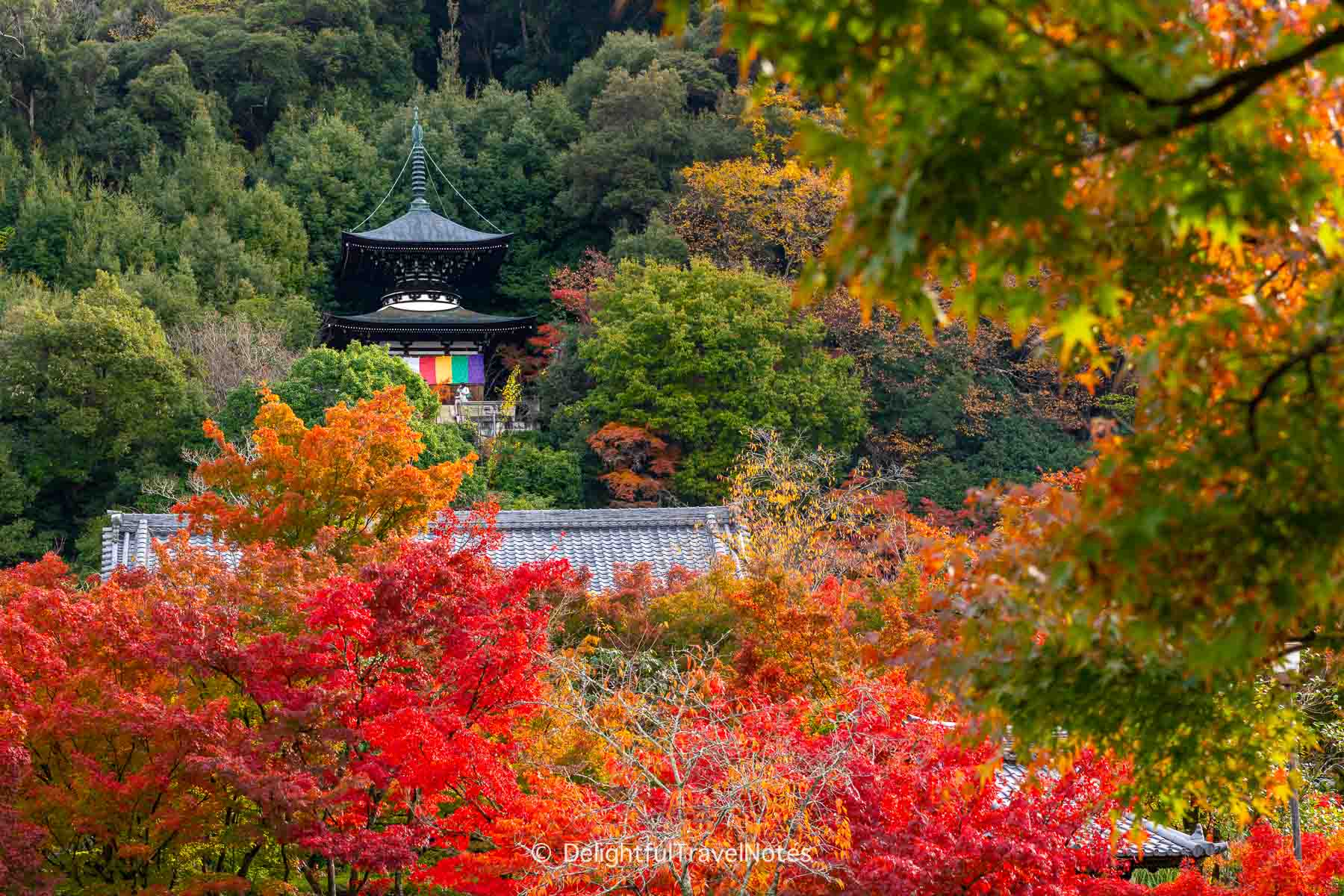
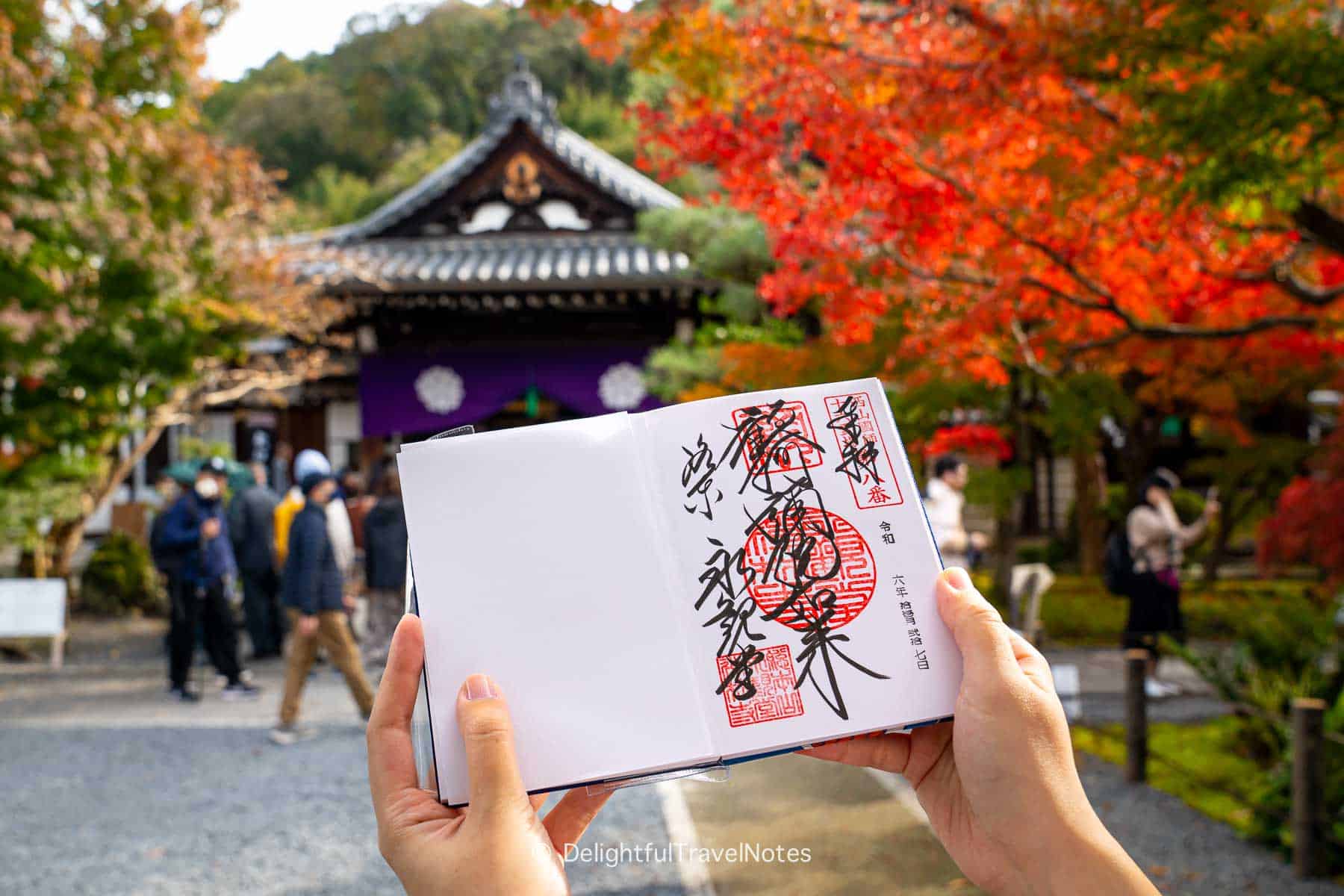
Even though the foliage wasn’t at its peak yet, we were thoroughly impressed by the vibrant colors as well as the diverse landscape and viewpoints at Eikan-do. I think it lives up to its reputation as one of the best temples to see fall colors in Kyoto.
Night Illuminations
Impressed by the daytime scenery, we decided to return for the night illuminations. Arriving a little past 7:30 p.m., we found no line at the gate. We had read about long lines for night visits, maybe that was during opening times?
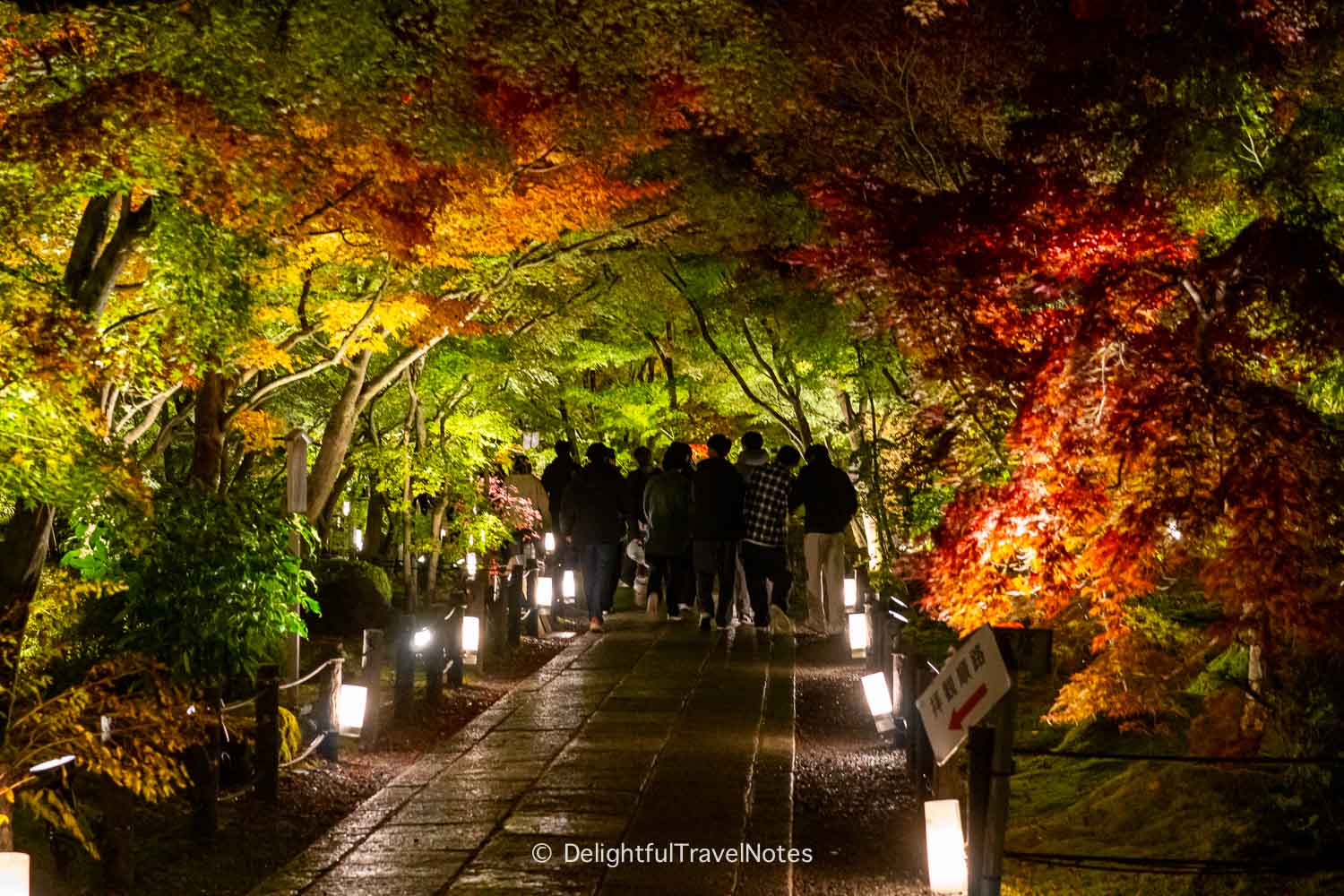
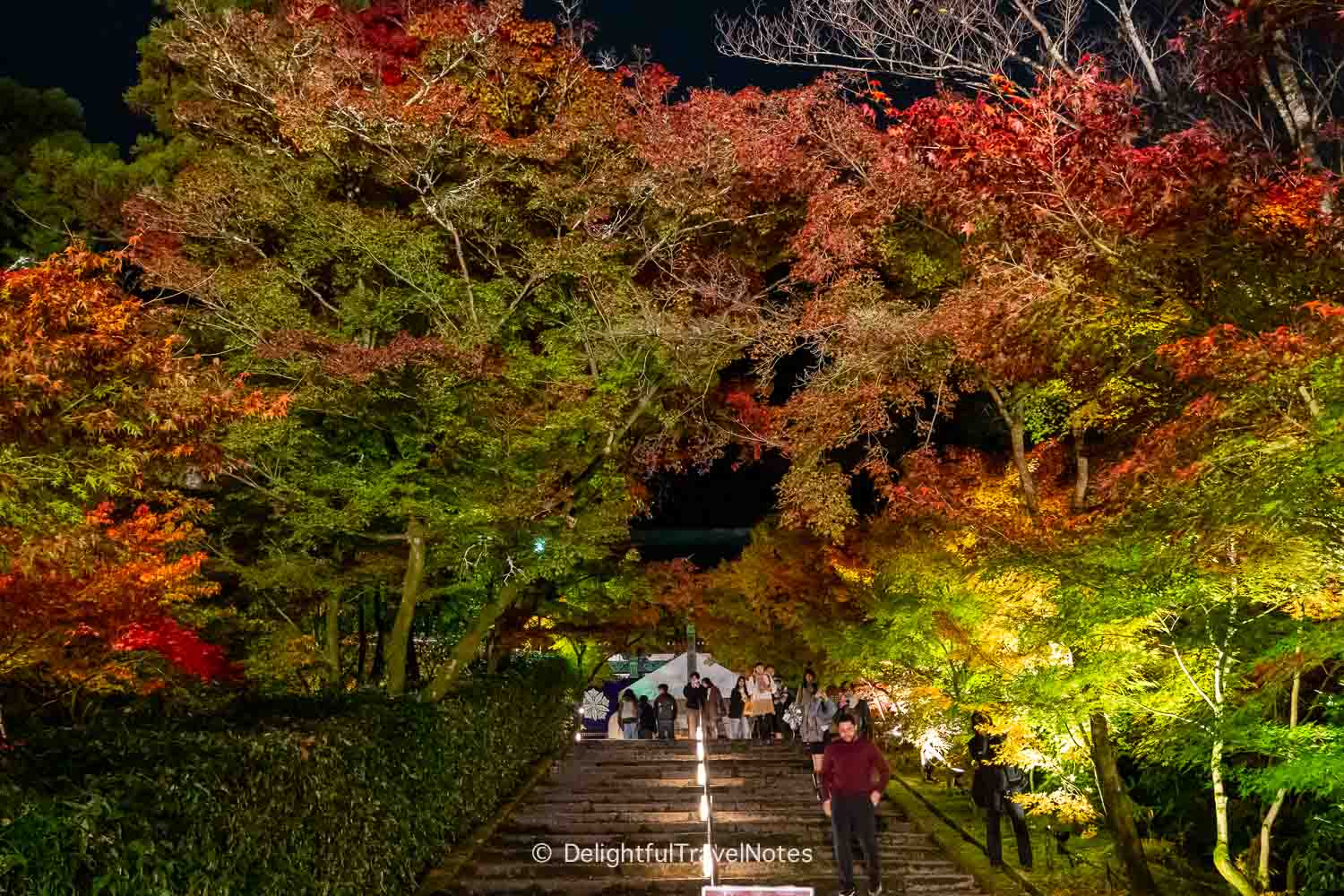
Tickets for the night illuminations were slightly cheaper than the daytime tickets, likely because only a limited area of the temple grounds is accessible at night. For example, visitors cannot climb to the pagoda, and only the Amida-do Hall is open among the indoor halls.
The area around Hojo Pond is the highlight of the night illuminations, with the bridge and surrounding foliage beautifully lit. However, visitors are not allowed to take pictures of the pond from the small bridge like during the day, probably due to safety reasons. You can stop briefly on the small bridge to take in the view but no photos are allowed. The good news is the opposite side of the pond still offers excellent opportunities to capture the illuminated bridge and vibrant reflections in the water.
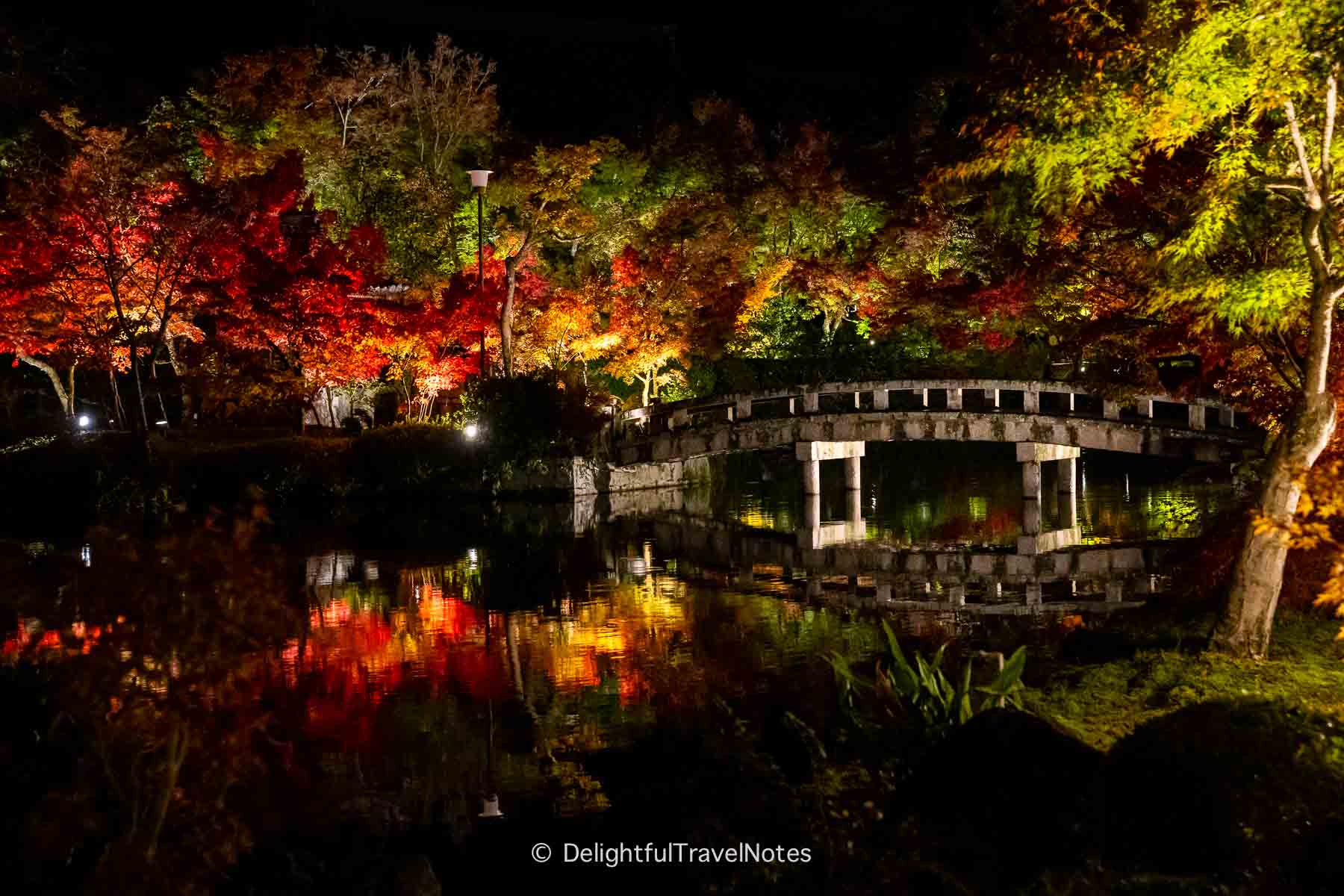
Just like during the day, the area around the pond is the most crowded. From our observation, the crowds in the evening were younger than those in the morning.
Final Thoughts
We enjoyed both our morning and evening visits to Eikan-do. It was busy but not overwhelming to us. I would say it was not as crowded as Kiyomizu-dera. The number of maple trees, vibrant foliage, and diverse viewpoints were what stood out to us.
We still think the daytime views were more beautiful and there were more things to see, but the night illuminations were quite mesmerizing and enchanting in its own way. As we stayed at The Westin Miyako Kyoto (Agoda | Booking) which is close by, it wasn’t much of an effort for us to visit Eikan-do twice.
Photography equipment used
- Sony a7 III with Sony 24-70mm F2.8 GM full frame lens (there is an updated version of this lens)
- Sony ZV-E10 with Sony 55mm F1.8 Sonnar full frame lens

Explore More
The Thousand Kyoto Review: Wonderful Hotel Right Next To Kyoto Station
How To Plan An Amazing Trip to Kyoto (Beyond General Japan Travel Tips)
Top Crowded Attractions in Kyoto and How to Avoid the Masses